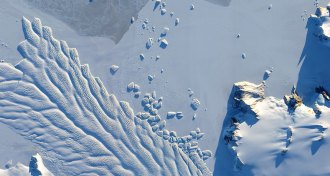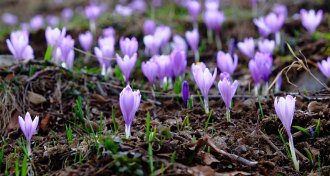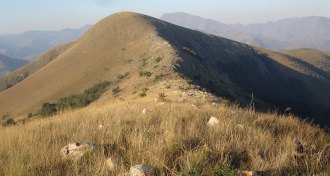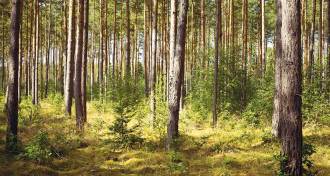Climate
-
 Climate
ClimateOrganic molecules help fatten cloud-making water droplets
Cloud-forming water droplets can grow larger thanks to organic molecules on the exterior of the drop, new research suggests.
-
 Agriculture
AgricultureClimate change threatens quality of French, Swiss wines
Wine quality could suffer as climate change desynchronizes warm temperatures and droughts, preventing grape growers from harvesting at the optimum time.
-
 Agriculture
AgricultureWine quality subject to climate change
Wine quality could suffer as climate change desynchronizes warm temperatures and droughts, preventing grape growers from harvesting at the optimum time.
-
 Climate
ClimateAntarctic history suggests ice sheet ‘danger’ threshold
Carbon dioxide levels during the Antarctic ice sheet’s formation 34 million years ago suggest that Earth could soon enter “danger zone” for ice sheet’s demise.
-
 Climate
ClimateEarlier blooming intensifies spring heat waves in Europe
The early arrival of spring plants due to climate change amplifies springtime heat waves in Europe, new climate simulations suggest.
-
 Climate
ClimateHurricane frequency dropped during 17th century ‘Little Ice Age’
Atlantic hurricane activity fell around 75 percent when the sun dimmed from 1645 to 1715, a new analysis of shipwrecks and tree rings suggests.
-
 Oceans
Oceans3.5 billion years ago, oceans were cool, not hot
Extensive new evidence from South Africa suggests that 3.5 billion years ago, Earth was locked in a cold spell, with isolated blasts of hydrothermal heat that may have helped incubate life.
By Beth Geiger -
 Environment
EnvironmentCalifornia gas leak spewed massive amounts of methane
New estimates suggest that a 2015 natural gas well blowout injected tons of greenhouse gases into the Los Angeles atmosphere.
-
 Oceans
OceansGreat Barrier Reef acidification predictions get worse
New simulations suggest that ocean acidification poses an even greater threat to the Great Barrier Reef than suspected.
-
 Climate
Climate20th century sea level rose at fastest rate since founding of Rome
Sea levels rose more rapidly in the 1900s than during any other century in at least 2,800 years, with global warming causing at least half that rise.
-
 Environment
EnvironmentUrban heat islands exist even in the Arctic
Arctic cities are a source of warming in the far north. Unlike midlatitude heat islands, poorly insulated buildings — not the sun — are a primary source.
By Janet Raloff -
 Climate
ClimateForest management not so hot at fighting warming
Forest management practices in Europe have slightly worsened climate change, new research shows.